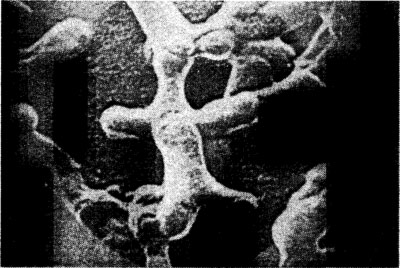Supplements for the prevention and correction dysbacterioses
Microbial flora of the intestine is involved in many vital processes of the human body, which, in turn, is her habitat. Normal microflora serves several important functions for life (protective, metabolic and immune) and participates in maintaining a constant internal environment. Violation of any of these three functions leads to metabolic changes, a deficit of vitamins, trace elements, mineral substances in the body, reducing its immune consistency.
Microbiocenose human intestine normally consists of 85-98% of bifidobacteria and laktobaktekry.

Bifidobacterium - is the natural microflora of an adult. Along with other representatives of the normal intestinal flora, bifidobacteria are actively involved in the digestion and absorption. They contribute to the processes of enzymatic digestion, as well as increase the hydrolysis of proteins, carbohydrates fermentation, saponify fats destroy crude fiber, stimulate intestinal peristalsis. Bifidobacterium are vitaminoobrazuyuschuyu function. They are involved in the synthesis and absorption of B vitamins, vitamin C, folic and nicotinic acids, contribute to the synthesis of essential amino acids, better assimilation of calcium salts, vitamin D, have Antianemic, antirahiticheskim and antiallergic activity. An important function of bifidobacteria is their participation in the formation of immunoreactivity of the organism. Bifidobacterium stimulate the lymphoid apparatus, the synthesis of immunoglobulins, increase the activity of lysozyme, and reduce the permeability of vascular tissue barriers to toxic products of pathogenic and opportunistic organisms. Normalization of intestinal microflora contributes to the maintenance of immunity, which improves the body's resistance to infectious diseases.
With a lack of bifidobacteria in the gut microbial balance is disturbed, and activated conditionally pathogenic microorganisms. Consequence of this phenomenon are various digestive disorders, including - the unstable liquid stools.

Lactobacilli, as well as bifidobacteria, are found throughout the gastrointestinal tract and are normally from 7 to 10% of the total number of intestinal bacteria. They have the ability to produce substances with antibacterial activity, which impede the growth of harmful microorganisms, including pathogenic fungi and viruses contribute to the destruction of pathogenic bacteria.
Lactobacilli are actively involved in the processes of digestion and absorption, stimulate intestinal peristalsis. Lactobacilli are involved in the removal of toxins, acting as a "natural biosorbent, accumulating metal compounds, phenols, formaldehyde, causing changes in the immune system. These bacteria also produce biologically active substances (eg, korotkotsepochechnye fatty acids) that regulate many body functions: the gastrointestinal tract, metabolism, liver and other body systems. The lack of lactobacilli is accompanied by dysfunction of the digestive system, the delayed introduction of products of metabolism.
Dysbacteriosis, dysbiosis, an imbalance of the microbial ecology of man - these terms are commonly used to describe the changes of microflora in the organism under the influence of various factors. Dysbacteriosis - a violation of the biological equilibrium between the pathogenic (harmful) and physiological (natural and useful) microflora in the human body, particularly in the gut.
Essence dysbacteriosis that the body can not digest food, that is, split the fats, proteins, carbohydrates. Moreover, time (within 24-32 hours) is not derived, virtually undigested food rotting in our body. Rotting absorbed into the blood and poison the human body.
Symptoms may include dysbacteriosis
disorder-chair: diarrhea and constipation;
-flatulence - increased gas formation in the intestine;
-abdominal pain, usually a monotone, pulling and expander nature, increasing in the afternoon, accompanied by flatulence, in some cases - strong;
-loud rumbling in the stomach.
A person suffering from dysbiosis, becomes irritable, depressed, he often changes the mood, in some cases with dysbacteriosis can mark changes of the mucous membrane of the lips, nail deformity and loss of hair, expressed mild bleeding.
However, these problems can be avoided if the time to take preventive measures to improve the intestinal microflora. She may suffer as a result of alcohol or otherwise intoxicated, improper nutrition, antibiotic therapy. In addition, the diet of modern man is not enough dairy products, vegetable fiber, which feed us a friendly microflora.
Biocomplexes "Bifidobak" and "Atsidobak" of Artlife Company specially designed to maintain the natural condition of the intestinal microflora. Research scientists show that the predominance of beneficial microflora and support its natural state inhibit the aging process and prevent develop many pathologies.
Bifidobak
highly complex bifidobacteria
BIFIDOBAK - biologically active food supplement that supports the balance of normal microflora of human intestine. BIFIDOBAK presented specially selected strains of microorganisms friendly to us, who have an increased survival rate in the intestinal tube. Contains a set of highly effective strains of bifidobacteria, which hinder the development of pathogenic bacteria in the gut, are involved in metabolism, produce vitamins, provide immunity.
Atsidobak
high-performance complex of lactic acid bacteria
ATSIDOBAK cultivated and grown on carrot basis (without lactose), which increases the viability of this species of bacteria and allows to use this product to those who are sensitive to lactose. Lactic acid bacteria - a type of bacteria-assistants, who are usually in a healthy digestive tract. They maintain the balance of flora, helps with digestion, and promotes the proper formation of stool and ensure the timely evacuation of the bowels. Prevent a delay chair. Form the basis for healthy digestive tract.
